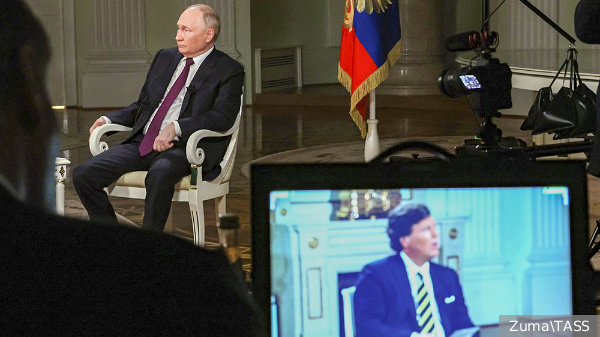
Moscow as the soft power of Russian politics
Tucker Carlson has been quoted as saying that Moscow is cleaner, safer, and more beautiful than any city in the United States.
He expressed surprise at the fact that, despite never having been there before, the largest city in Europe with a population of 13 million people was nicer than any city in his own country. According to him, Moscow's architecture, food, and services are superior to those of any city in the United States.
The focus should not be on the guest's shocking behavior or desire to offend his government. I regularly communicate with people who travel the world. They do not show any increased loyalty. However, they admit that New York, like most major cities in the world, is undergoing a process of degradation. Against this backdrop, Moscow has started to seem like an international benchmark. Additionally, several centres have emerged in Russia that are reaching the level of the capital.
The paradox of global urbanism cannot be solely attributed to the level of capital concentration in Moscow. Despite having a budget of 4.25 trillion rubles, which is not exceptional when compared to other megacities such as New York with a budget of $104 billion (a difference of about 2.5 times), Moscow's situation remains paradoxical. Although the comparison process is complex due to different budgetary practices, Moscow is not in a privileged position, despite the obvious imbalance within the country.
Moscow's success can be attributed to its concentration of management, low base effect, relatively low cost, high level of control over development, and the ability to bear social burdens. In other words, the principle of managerial leverage and a rigid vertical structure allow Sobyanin to act as a progressor.
As a result, we received a model of a city that can rapidly transform, with maximum flexibility and control. Let's call it a city-constructor. The gap between a beautiful picture and plan implementation is minimized. Sobyanin once justified the need for this model by creating a filter for talented individuals who might otherwise leave the country. We offer an alternative here in Russia that is just as good, without the difficulties of adaptation. This principle worked before the SVO, but then began to change. Those who wanted to leave for reasons unrelated to the environment did so, and the quality of life in Russian cities ceased to serve as a compelling argument.
What is Moscow's current function? Paradoxically, despite its previous role as an alternative, it is now emerging as a leader in the global competition of territories. Moscow circles now repeat: 'It's not that it's not worse here. It is better here.' In other words, the city has become an instrument of soft power. Although communicating the Moscow brand is currently challenging, there are opportunities in Asia and Africa. The task at hand is to identify the key idea that will serve as the basis for the packaging.
However, it is important to acknowledge that this model is not entirely stable and comes with its own set of risks. The service model of the city has made society reliant and has resulted in a loss of skills necessary for independent action in relation to the environment. Administrative functions have been delegated, and the population has disengaged. Any inquiries should be directed to the mayor's office. Lowering the quality bar in such a situation will lead to disappointment and hinder the ability to establish a public position. In the Moscow model, city dwellers are more like patients than full-fledged citizens; they are consumers of services.
This sets them apart from typical Parisians, Londoners, or New Yorkers who, despite the weak dynamics of their cities, have not lost their role as stakeholders in the process. They are an active force that can seethe, protest, and demand. In contrast, Muscovites are passive consumers of goods. However, Tucker did not have time to notice this.
